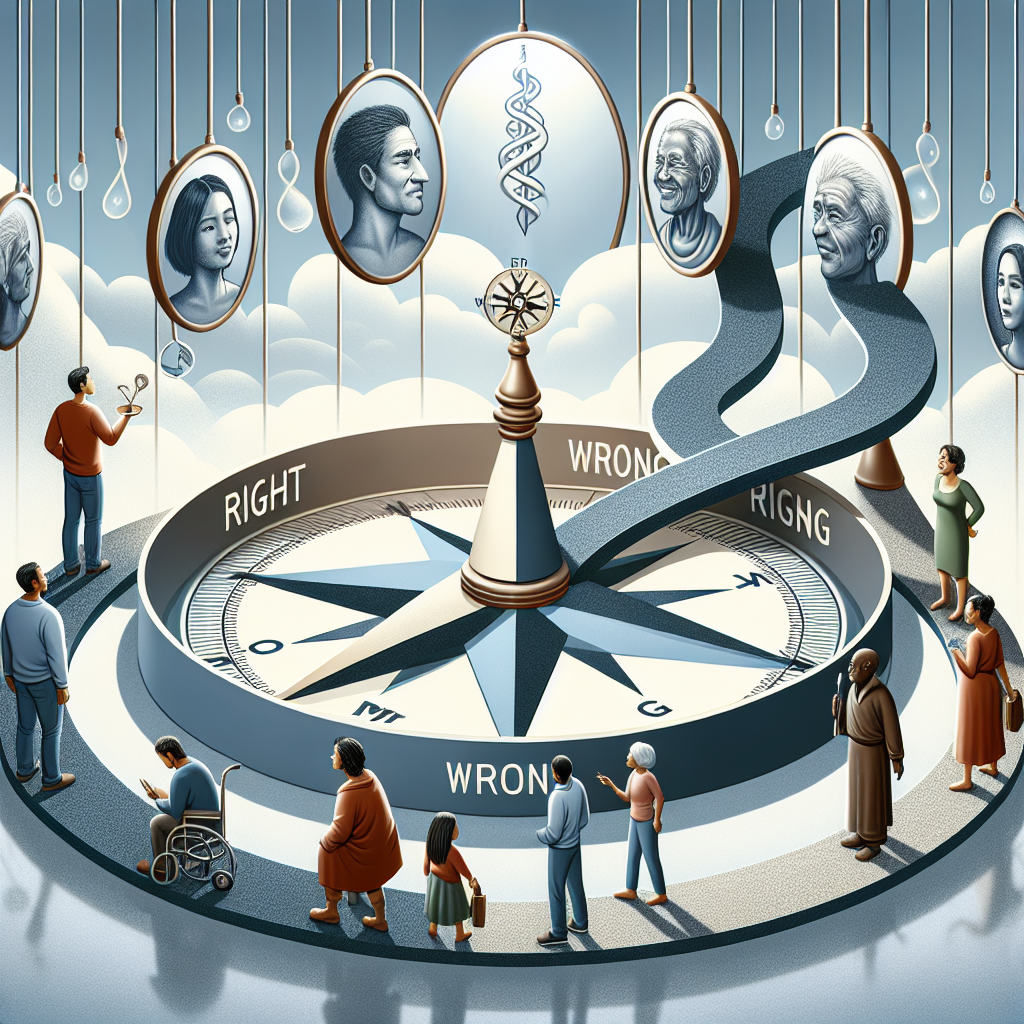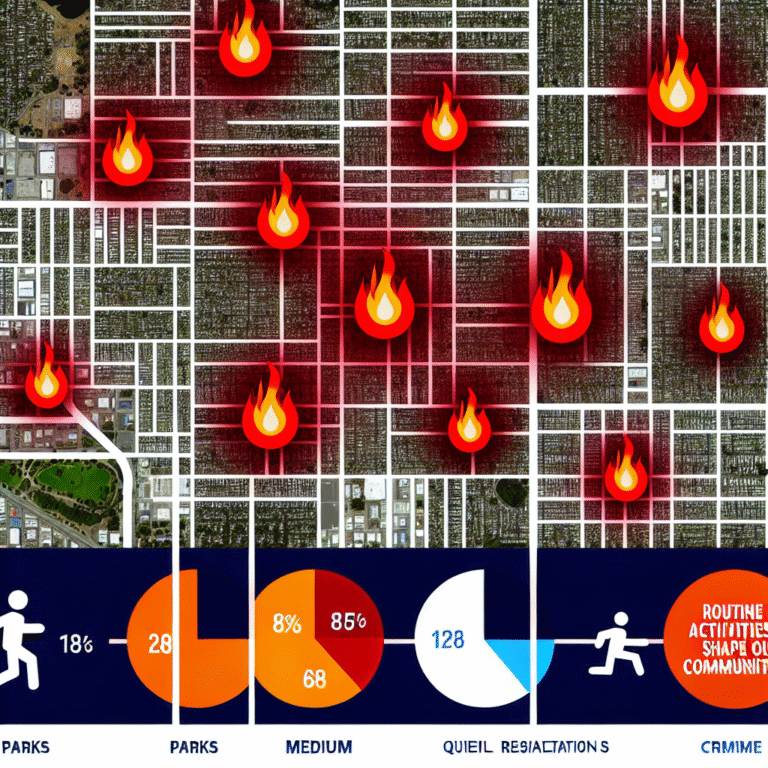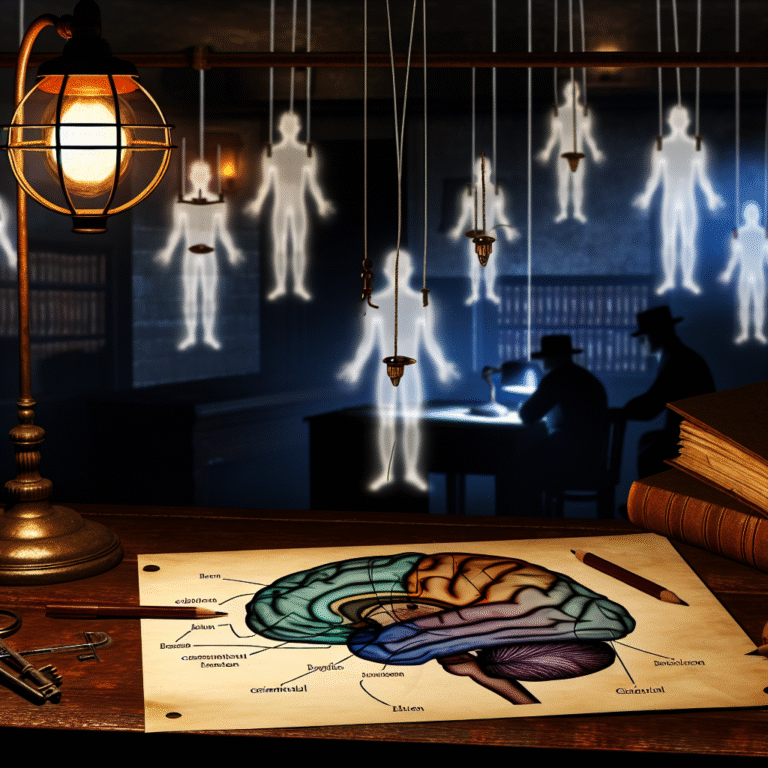
Introduction
In a world defined by moral ambiguity and complex decision-making, understanding the pathways through which we develop our sense of right and wrong has never been more crucial. From childhood to adulthood, our moral compass shifts, reflecting personal growth, cultural influences, and social interactions. The quest for ethical clarity shapes not only individual lives but also our collective future. Navigating Right and Wrong: The Journey of Moral Development invites readers to delve into the intricacies of morality, illuminating how we can traverse this landscape with wisdom and insight.
Understanding Moral Development
Moral development is an essential aspect of psychology that explores how individuals distinguish between right and wrong throughout their lifetime. Pioneered by great thinkers such as Jean Piaget and Lawrence Kohlberg, our understanding of moral reasoning has evolved significantly, providing a framework for assessing not just how we think but how we act.
Theoretical Frameworks
Piaget’s Stages of Moral Development
- Heteronomous Morality (Age 4-7): Children view rules as fixed and immutable.
- Autonomous Morality (Age 7 and beyond): Children begin to understand that rules are created by people and can be changed.
Kohlberg’s Stages of Moral Development
- Pre-conventional Level: Focuses on direct consequences to oneself.
- Conventional Level: Emphasizes conformity to societal norms.
- Post-conventional Level: Involves adherence to universal ethical principles.
Case Study: The Impact of Parenting Styles
Research shows that parenting significantly influences a child’s moral development. For instance, authoritative parents who balance warmth with structure produce children with higher moral reasoning abilities.
Analysis: This illustrates that environment plays a critical role in navigating right and wrong. The parents’ methods of communication can impact children’s ability to empathize and engage in moral reasoning.
Factors Influencing Moral Development
Several elements contribute to the formation of our moral compass, from genetics to culture.
Cultural Contexts
Cultural values dictate what is considered right or wrong, thus providing a backdrop against which moral development takes place.
- Individualistic Cultures: Often emphasize personal achievement and autonomy.
- Collectivist Cultures: Prioritize the well-being of the group over individual ambition.
Social Influences
Peer relationships heavily influence moral decisions, particularly during adolescence. The desire to fit in often creates friction between personal morals and group norms.
Table: Comparative Analysis of Moral Development Across Cultures
| Aspect | Individualistic Cultures | Collectivist Cultures |
|---|---|---|
| Morality Emphasis | Individual rights | Group harmony |
| Parental Influence | Autonomy | Conformity |
| Moral Reasoning Type | Rights and rules | Roles and duties |
Practical Applications of Moral Development
Understanding moral development not only provides insights into human behavior but also informs practical applications across different sectors.
Education
Educational institutions can foster moral reasoning through curricular interventions, encouraging students to discuss ethical dilemmas openly. Schools can incorporate programs that emphasize emotional intelligence, empathy, and ethical decision-making.
Business Ethics
In corporate settings, leaders can establish ethical cultures by promoting transparency and social responsibility. The company’s moral framework shapes employee behaviors and decision-making practices.
Case Study: Ethical Dilemmas in Business
The Enron scandal serves as a stark reminder of what occurs when corporate moral development stagnates. Unethical practices led to devastating consequences for employees and shareholders alike.
Analysis: This example underlines the significance of navigating right and wrong within organizational settings and illustrates the potential ramifications of neglecting moral responsibilities.
Navigating Right and Wrong as Adults
As we mature, moral dilemmas become increasingly complex, often leading to significant cognitive and emotional challenges.
The Role of Critical Thinking
Developing critical thinking skills is vital for effective moral reasoning. Engaging in reflective practices allows adults to reconsider previous beliefs and adapt them in light of new information.
Empathy and Perspective-Taking
Empathy is a cornerstone of moral understanding. The ability to consider the feelings and perspectives of others enhances moral reasoning and promotes compassionate action.
Table: Skills for Adult Moral Development
| Skill | Definition | Importance |
|---|---|---|
| Critical Thinking | Analyzing facts to form a judgment | Informed decision-making |
| Empathy | Understanding and sharing the feelings of others | Cultivating compassion |
| Perspective-Taking | Viewing situations from multiple viewpoints | Enhancing moral reasoning |
Challenges in Moral Development
Several obstacles can impede moral growth, including societal pressures, cognitive biases, and emotional turmoil.
Cognitive Dissonance
Cognitive dissonance occurs when our beliefs clash with our actions, leading to internal conflict. This dissonance can create barriers to moral clarity and decision-making.
The Bystander Effect
In social situations, the bystander effect can hinder moral action. Individuals may assume someone else will intervene, leading to inaction even when moral choices are clear.
Conclusion
Navigating Right and Wrong: The Journey of Moral Development is not a linear path but a complex journey filled with challenges and opportunities for growth. As we reflect on our moral compass—shaped by cultural influences, social interactions, and personal experiences—we can cultivate an ethical mindset rooted in empathy and critical thinking. By fostering these qualities within ourselves and our communities, we can embrace the journey of moral development and contribute to a more just and compassionate world.
Motivational Takeaway
Remember, each decision you make is a step on your journey. Embrace the learnings, reflect on your experiences, and strive to navigate your moral development with integrity and self-awareness.
FAQs about Moral Development
1. What is moral development?
Moral development refers to the process through which individuals form their understanding of what is right and wrong, influenced by social, cultural, and cognitive factors.
2. Who proposed the major theories of moral development?
Jean Piaget and Lawrence Kohlberg are two of the most influential theorists in moral development.
3. How does parenting affect a child’s moral compass?
Different parenting styles significantly influence a child’s moral reasoning and ethical behavior as they grow.
4. Can adults continue to develop morally?
Yes, moral development continues throughout adulthood, influenced by experiences, reflections, and social contexts.
5. Why is empathy important in moral development?
Empathy allows individuals to understand and consider others’ feelings, which enhances moral reasoning and promotes positive social interactions.
By exploring the intricate landscape of moral development, we empower ourselves to not only navigate right and wrong but to do so with intention, compassion, and integrity.















